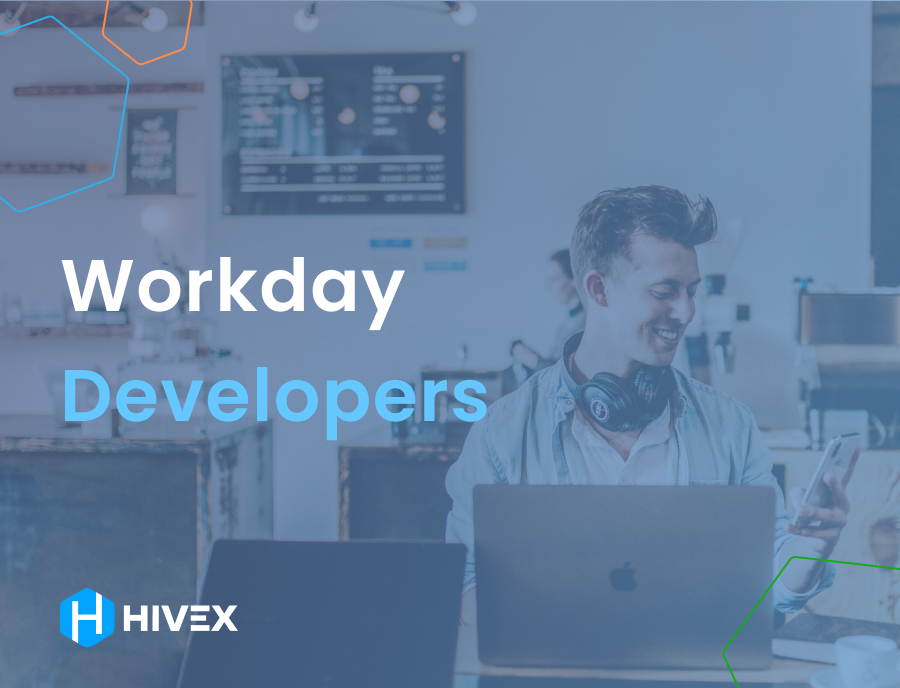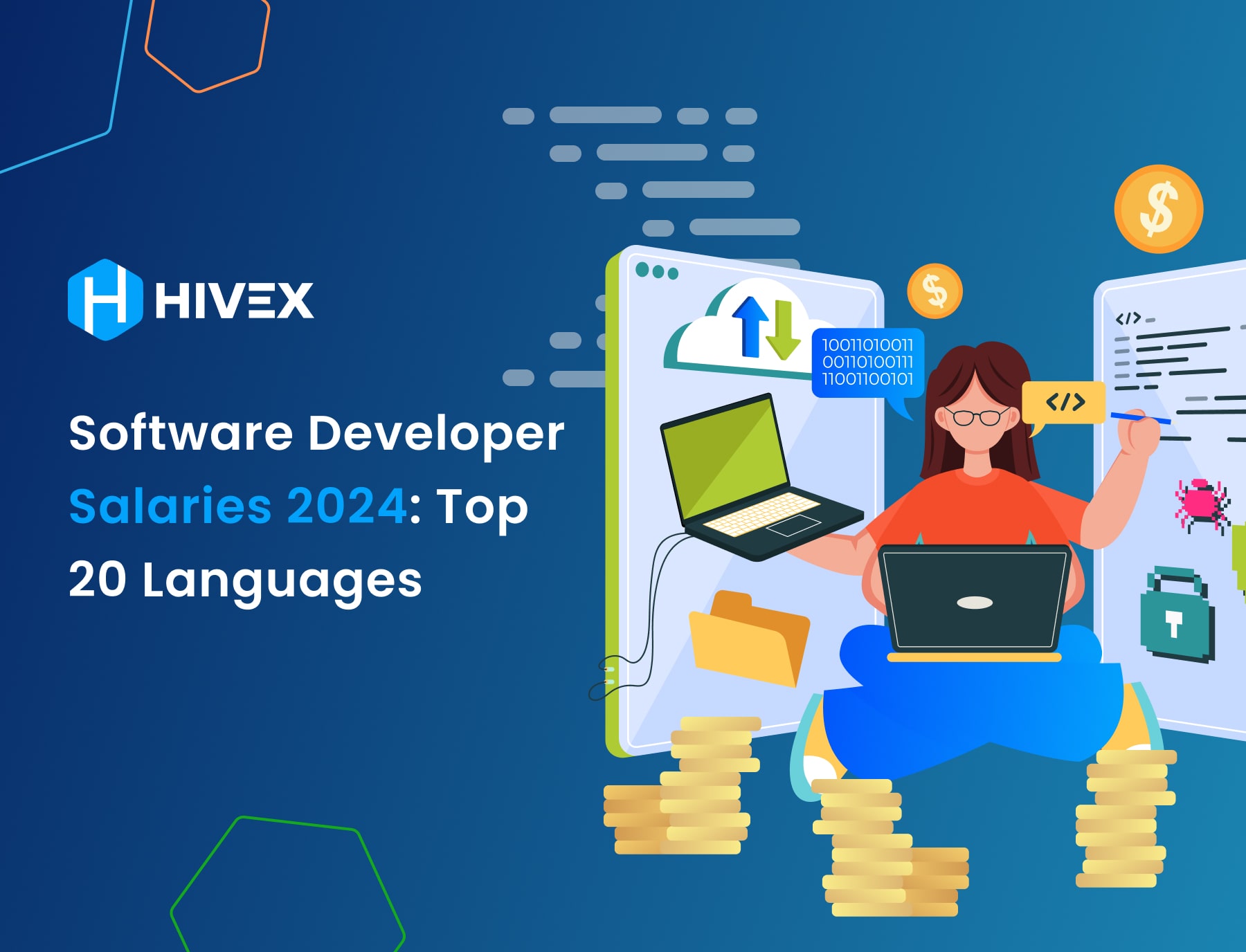AI Engineer Job Description Overview: Duties And Skills
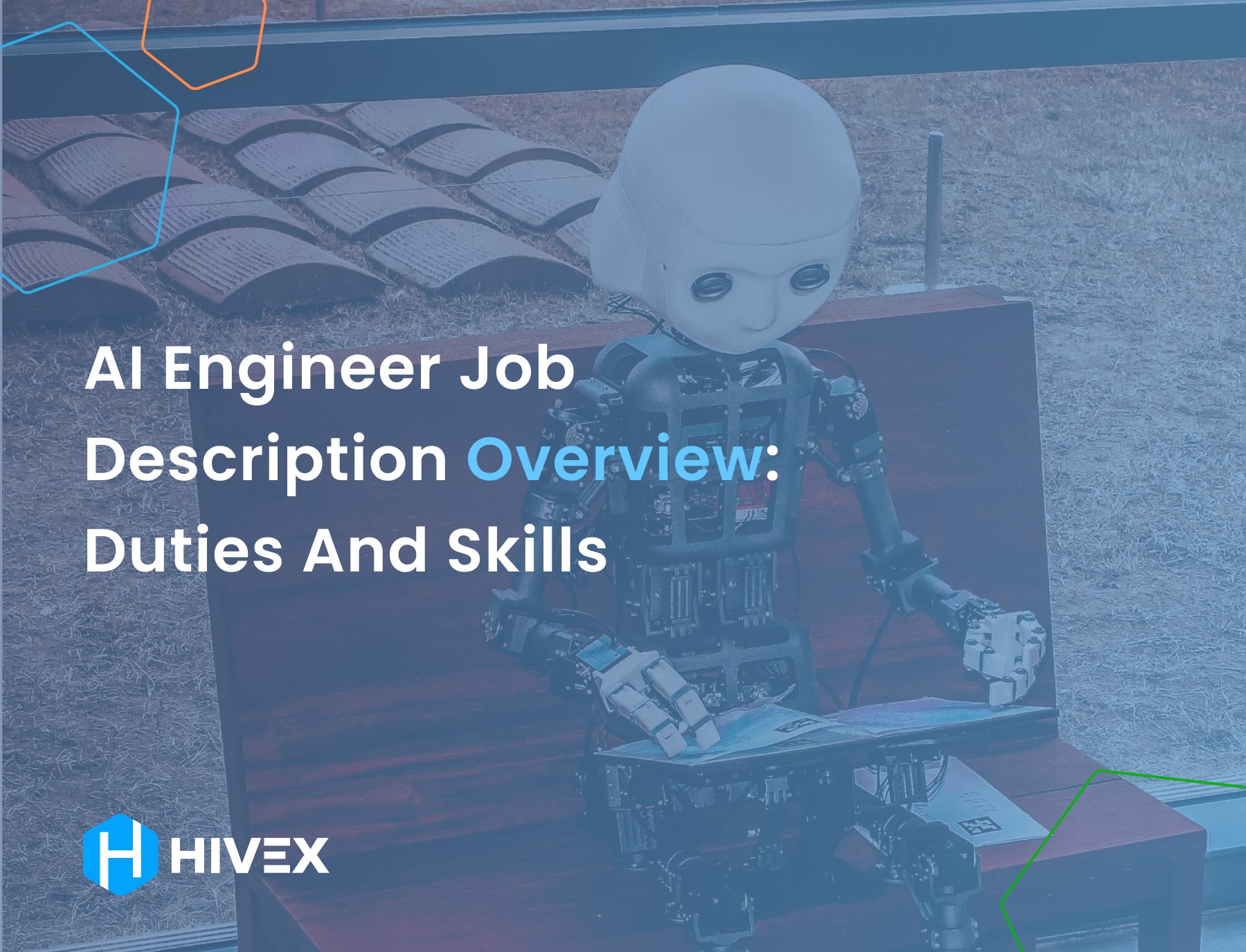
Artificial intelligence has rapidly grown in importance across industries, from healthcare to finance, underscoring the need for a comprehensive AI engineer job description to guide businesses in hiring skilled professionals capable of harnessing AI’s potential.
The demand for AI engineers has surged in recent years, and in this article, we will explore their job description, key responsibilities, essential skills, educational requirements, and career progression.
Let’s start!
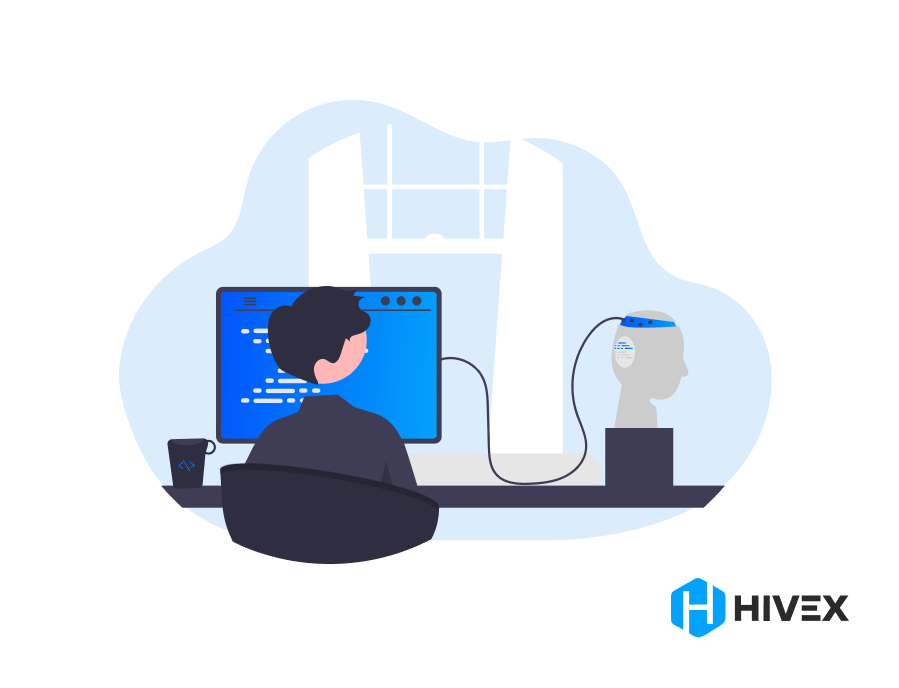
The Demand For Artificial Intelligence Engineers
Artificial intelligence engineers are in high demand as businesses realize the value artificial intelligence can bring to innovation and competitiveness.
These professionals play a crucial role in developing and implementing AI solutions that automate processes, analyze data, and make predictions. From self-driving cars to voice recognition systems, AI engineers are at the forefront of shaping the technology that drives the future.
Artificial intelligence is revolutionizing industries across the board, from healthcare to finance to entertainment, offering profound business insights. AI engineers are not only responsible for creating cutting-edge algorithms and models but also for ensuring that these technologies are ethical and unbiased.
As artificial intelligence advances, the need for skilled engineers who can navigate complex ethical considerations will only grow, creating more AI engineering jobs.
This field is constantly evolving, with new breakthroughs and applications emerging rapidly. Applying AI in various sectors resembles the workings of the human brain, finding patterns and solutions in vast amounts of data.
AI engineers must stay up-to-date with the latest trends and technologies to remain competitive in the job market. Continuous learning and professional development are essential for AI engineers to stay ahead of the curve and drive innovation in this dynamic field. The ability to predict future trends and changes is a key aspect of their role, closely tied to business process management.
Their expertise in AI strategy not only shapes technological advancements but also guides organizations in integrating AI into their core operations for enhanced efficiency and innovation.
“Master AI before it masters you.” – Ruben Hassid, Founder of rubenhassid.ai
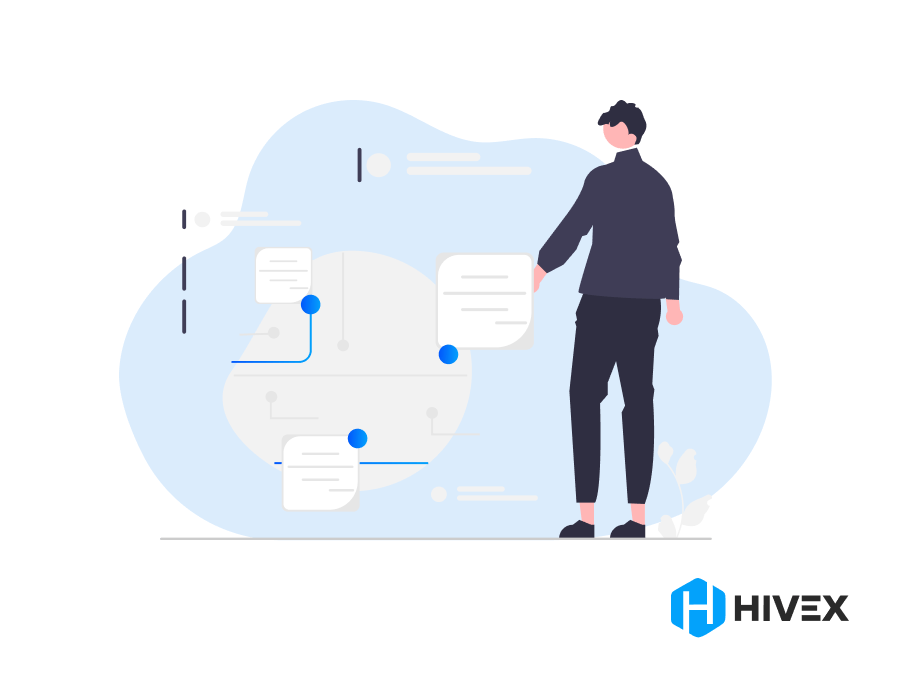
Key Responsibilities of an Artificial Intelligence Engineer
An artificial intelligence engineer is a key player in AI, responsible for a wide array of tasks from building AI models to ensuring ethical standards.
Below, we outline the key responsibilities of an AI engineer, highlighting their importance in various aspects of data science, software development, and AI technology.
1. Analyzing Complex Problems
An AI engineer’s primary responsibility is to analyze complex problems and design AI-based solutions. This involves a deep understanding of data engineering and the ability to build AI models that efficiently solve these problems.
2. Collaboration with Data Scientists and Software Engineers
They work closely with the data science team and software engineers to develop machine learning algorithms and models. This collaboration ensures the development of robust AI solutions capable of processing and analyzing vast amounts of data.
3. Identifying Business Requirements
AI engineers collaborate with cross-functional teams to identify business requirements, ensuring their AI solutions align with organizational goals and contribute to making informed business decisions.
4. Testing and Debugging AI Systems
Responsible for testing and debugging AI systems to ensure accuracy and performance. This continuous refinement of AI models based on real-world feedback enables systems to adapt and improve over time.
5. Specialization in AI Domains
Artificial intelligence engineers specialize in specific areas such as natural language processing, computer vision, or machine learning algorithms. This specialization allows them to develop a deeper understanding and expertise, which they apply in implementing AI applications.
6. Technical Skills Development
Being technically inclined, they are responsible for their continuous learning and development in areas such as image processing and data science, which are integral to their role.
7. Ethical and Responsible Use of AI
They play a crucial role in ensuring AI ethics and responsibility. This includes considering the impact of AI solutions on society and implementing safeguards for data integrity and user privacy.
8. Advocacy for Transparency and Accountability
artificial intelligence engineers advocate for transparency and accountability in AI decision-making processes, which is vital to maintaining public trust in AI technology.
9. Staying Updated with AI Advancements
They continuously monitor market trends and the latest advancements in AI technologies, incorporating them into their work to achieve desired results and stay ahead in a broad range of applications.

Required Skills for an Artificial Intelligence Engineer
1. Proficiency in Programming Languages
A foundational skill for an AI engineer is proficiency in programming languages such as Python, Java, or C++. This is crucial for software programming and developing efficient AI algorithms.
2. Mathematical Skills
Strong mathematical skills, particularly in linear algebra and calculus, are vital. These skills are essential for understanding and optimizing AI systems.
3. Machine Learning Techniques
AI engineers should have in-depth knowledge of machine learning techniques, including supervised and unsupervised learning, and be able to test machine learning models for efficacy.
4. Understanding of Data Structures and Algorithms
A deep understanding of data structures and algorithms is essential for processing large datasets and optimizing AI algorithms.
5. Machine Learning Model Selection and Fine-Tuning
The ability to select the most suitable models for specific tasks and fine-tune them for optimal performance is key.
6. Collaboration with Data Analysts
Collaboration with data analysts to pull data and analyze it is vital for developing accurate AI models.
7. Knowledge of REST API Development
Familiarity with REST API development is beneficial for integrating AI solutions into existing software infrastructure.
8. Implementing AI Applications
Skills in implementing AI applications and the ability to deploy AI models effectively are important for bringing AI solutions to fruition.
9. Computer Science Fundamentals
A strong grasp of computer science fundamentals, including software engineering principles, is vital for building robust and reliable AI systems.
10. Problem-Solving and Critical-Thinking Skills
Excellent problem-solving and critical-thinking abilities are necessary to identify AI-related challenges and design innovative, early-stage solutions.
11. Communication Skills
Strong communication is required to collaborate effectively with different teams and convey complex AI concepts to non-technical stakeholders.
12. Staying Updated with AI Advancements
Staying competitive and enhancing AI development processes requires constantly learning new algorithms, tools, and technologies.
The skill set of an artificial intelligence engineer is extensive, ranging from technical expertise in software programming and machine learning to strong analytical and problem-solving abilities. These skills are essential for creating advanced AI solutions that are effective, scalable, and aligned with business needs.
You may also like: Performance reviews for software engineers

Machine Learning: a Key Area of Expertise
AI and machine learning are vital for engineers. ML focuses on algorithms that learn from data, improving without explicit programming. This involves statistical analysis and various techniques like classification and clustering.
For instance, artificial intelligence engineers develop models to predict customer behavior using historical data. These models are crucial for business insights and help in making data-driven decisions, fostering business growth. They also work on computer vision, and training algorithms to recognize patterns in images or videos.
A key part of ML is natural language processing (NLP), enabling machines to understand human language. NLP applications, like chatbots and sentiment analysis, are valuable for automating and improving customer interactions.
Moreover, deep learning, a subset of machine learning technology, imitates the human brain. It’s used in image recognition, autonomous driving, and more. Deep learning’s ability to handle large data sets and complex patterns is essential for solving tough problems across industries.
Machine learning applications and concepts like NLP and deep learning are essential. They are integral to developing AI strategies that align with human behavior and improve business processes.
Understanding machine learning concepts and their practical applications is key to advancing the AI and machine learning fields.
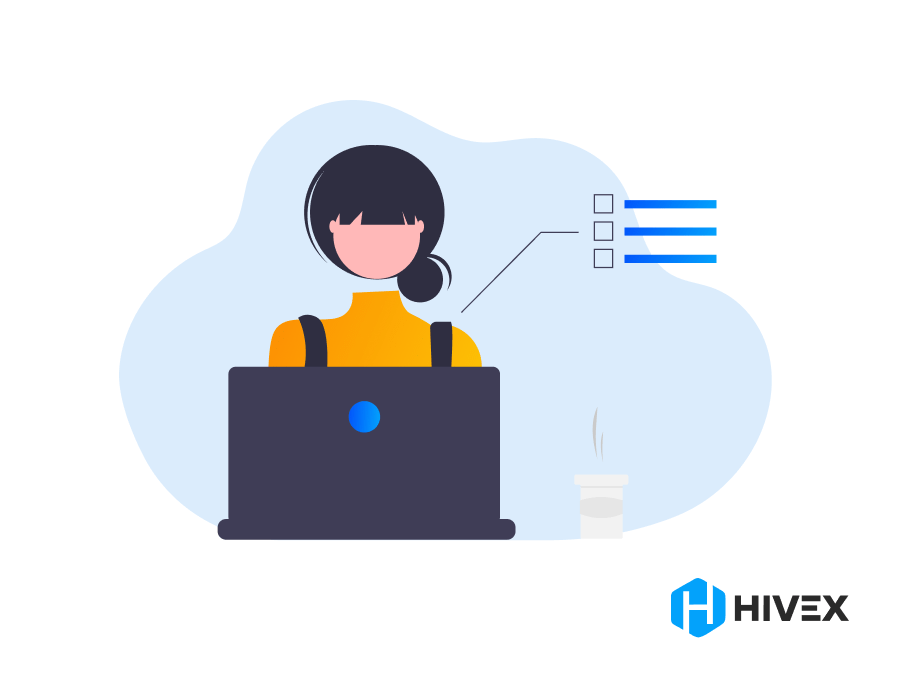
Educational Requirements and Qualifications for AI Engineers
To become an artificial intelligence engineer, a robust educational background in computer science, engineering, or a related field is typically necessary.
A bachelor’s degree is the minimum requirement, but many in this field, particularly those interested in data science, pursue an advanced master’s degree or Ph.D. to deepen their expertise in AI, deep learning algorithms, and related disciplines.
Practical experience is equally critical alongside academic qualifications. AI engineers often gain experience through internships, research projects, or industry collaborations.
Engaging in activities like Kaggle competitions or contributing to open-source AI projects showcases practical skills and dedication to the field.
Staying updated with the latest trends and advancements in artificial intelligence is crucial for AI engineers. Participating in workshops, conferences, and online courses helps professionals stay informed about cutting-edge technologies and methodologies. Networking with other AI experts and industry professionals offers valuable insights and opportunities for collaboration.
AI engineers need strong analytical and problem-solving skills. They must be able to interpret complex data sets and perform statistical analysis to identify patterns and develop algorithms for real-world applications. Their role may also involve understanding aspects of human intelligence and neuro-linguistic programming.

Career Progression for Artificial Intelligence Engineers
Career prospects in AI engineering are bright, offering ample opportunities for growth and specialization.
Artificial Intelligence continues to evolve, professionals can delve into areas such as natural language processing, computer vision, or robotics. Developing expertise in these areas enables AI engineers to take on more complex projects and leadership roles.
Moreover, artificial intelligence engineers can progress to managerial positions, oversee teams and projects, or enter research roles in academia.
They might also join AI-focused startups to innovate and shape the AI strategy for new products or services. The ongoing growth and adoption of AI in the automation market ensure high demand for AI engineers.
An exciting aspect of AI engineering is working on cutting-edge projects.
Artificial intelligence engineers might develop AI systems for medical diagnosis, supply chain optimization, or cybersecurity enhancements. Their work often involves interdisciplinary collaboration, incorporating data analytics and computer engineering skills.
AI technologies integrate into various industries, so engineers lead innovations. They might be involved in autonomous vehicle development, designing personalized healthcare solutions, or enhancing customer service with AI-powered chatbots.
This field’s versatility allows AI engineers to explore diverse applications, from image processing to speech recognition, and influence the future of multiple sectors.
Artificial intelligence engineers, equipped with skills like data analytics and computer engineering experience, can significantly influence business decisions. Their ability to implement AI applications across various domains makes them invaluable in the rapidly evolving AI landscape.
In summary, a career in AI engineering offers a path filled with diverse opportunities, from technical specializations to leadership roles.
AI engineers are instrumental in driving forward the capabilities of AI, making significant contributions to both the technology and the automation market.
Related Reading: How to Hire AI Developers
